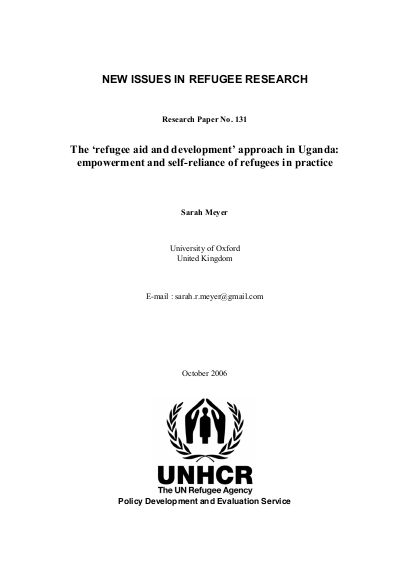
The following research is grounded in a recognition that the RAD approach to refugee aid and policy could be to the benefit of a variety of actors – the international refugee regime, donors, host governments, refugees and local host communities. This examination nevertheless adopts a critical perspective on the potential of the SRS in Uganda to achieve its stated objectives, given the lack of recognition of the obstacles to empowerment for refugees, the absence of avenues for refugees’ effective input into the process and the flawed conceptualisation of self-reliance embedded in the SRS program and the RAD approach more broadly. The SRS clearly appealed to a range of interests for UNHCR Kampala, UNHCR Geneva and GoU, at both a national and district level. Seeking to address these interests is an understandable, and perhaps, realistic, approach to negotiate the political tensions and conflicting agendas present in protracted refugee situations, between donors’ interests to cut care and maintenance costs, host governments’ fears to permanent integration of refugees, and UNHCR’s mandate to protect refugee rights while mediating these interests. Yet, in seeking to address these interests, the focus on refugee empowerment in the SRS has been more rhetorical than practical. One of the underpinnings of the RAD approach, selfreliance, can in fact undermine refugee protection and create obstacles to refugee empowerment. It has largely been assumed that the outcomes of a RAD approach will necessarily be
